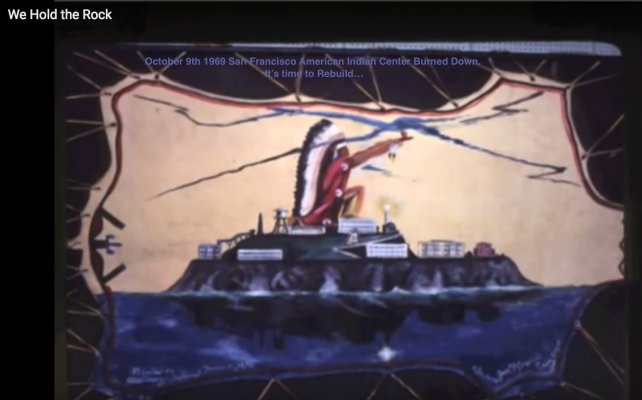
Indigenous Peoples Day: San Francisco

 Maxine K. signed
just now
Maxine K. signed
just now  Adam B. signed
just now
Adam B. signed
just now 
Indigenous Reconciliation & Recognition - Recognizing Indigenous Peoples and Places
The United States has shifted to support correcting America's history, the time has come for a San Francisco resolution removing Columbus Day and acknowledging that Indigenous Peoples Day has arrived. The Bay Area has lead the way, with Berkeley enacting Indigenous Peoples Day; Los Angeles has just passed its own resolution. Will the most progressive city in the country keep pace? Here is a proposal to level up. Indigenous Reconciliation & Recognition.
San Francisco City Council: enact resolutions before October 9, 2017, to drop Columbus Day and recognize the Indigenous Peoples of the Americas this year 2017. Remove symbols of white supremacy, including the statues of Christopher Columbus and others claiming doctrines of discovery, from city property. A proclamation will be put forth for the State of California to follow suit.
Rebuild the Native American Center in San Francisco. On October 9th, 1969, the American Indian Center in San Francisco was destroyed by fire and has not been rebuilt. The City of San Francisco will provide land and 1% of budget for funding the operations of this Native American Center. Further a 1% tax on real estate transactions is enacted that that demonstrates an ongoing recognition the Ohlone People of the SF Bay Area, California Indigenous Tribes and Indigenous Peoples of America. This Center will celebrate the Indigenous Peoples, Languages, Arts and contributions to Human Knowledge and Culture.
History From Wikipedia
In 1977, the International Conference on Discrimination Against Indigenous Populations in the Americas, sponsored by the United Nations in Geneva, Switzerland, began to discuss replacing Columbus Day in the United States with a celebration to be known as Indigenous Peoples Day.[4] Similarly, Native American groups staged actions in Boston, Massachusetts instead of Thanksgiving, which has been celebrated there to mark collaboration between English colonists and Native Americans in the first years. In July 1990, at the First Continental Conference on 500 Years of Indian Resistance in Quito, Ecuador, representatives of Indian groups throughout the Americas agreed that they would mark 1992, the 500th anniversary of the first of the voyages of Christopher Columbus, as a year to promote "continental unity" and "liberation." [5]
After the conference, attendees from Northern California organized to plan protests against the "Quincentennial Jubilee" that had been organized by the United States Congress for the San Francisco Bay Area on Columbus Day 1992. It was to include replicas of Columbus' ships sailing under the Golden Gate Bridge and reenacting their "discovery" of America. The delegates formed the Bay Area Indian Alliance and in turn, the "Resistance 500" task force.[6] It promoted the idea that Columbus' "discovery" of an inhabited lands and subsequent European colonization of these areas had resulted in the genocide of indigenous peoples by decisions of colonial and national governments.[7][8]
In 1992, the group convinced the city council of Berkeley, California, to declare October 12 as a "Day of Solidarity with Indigenous People", and 1992 the "Year of Indigenous People". The city implemented related programs in schools, libraries, and museums. The city symbolically renamed Columbus Day as "Indigenous Peoples' Day" beginning in 1992[9] to protest the historical conquest of North America by Europeans, and to call attention to the losses suffered by the Native American peoples and their cultures[10] through diseases, warfare, massacres, and forced assimilation. Get Lost (Again) Columbus, an opera by a Native American composer, was produced that day.[11] Berkeley has celebrated Indigenous Peoples' Day ever since.[12] Beginning in 1993, Berkeley has also held an annual pow wow and festival on Indigenous Peoples' Day.[6]
In the years following Berkeley's action, other local governments and institutions have either renamed or canceled Columbus Day, either to celebrate Native American history and cultures, to avoid celebrating Columbus and the European colonization of the Americas, or due to raised controversy over the legacy of Columbus.[13] Several other California cities, including Richmond, Santa Cruz, and Sebastopol, now celebrate Indigenous Peoples' Day and on this day all people are encouraged to donate to a neighboring tribe and recognize the trauma and pain indigenous peoples have been subjected to by colonizers. [13]
At least four states do not celebrate Columbus Day (Alaska, Hawaii, Oregon, and South Dakota); South Dakota officially celebrates Native American Day instead.[3][14][15] Various tribal governments in Oklahoma designate the day as "Native American Day", or have renamed the day after their own tribes.[16] In 2013, the California state legislature considered a bill, AB55, to formally replace Columbus Day with Native American Day but did not pass it.[17] On August 30, 2017, following similar affirmative votes in Oberlin, Ohio[18], followed later by Bangor, Maine in the earlier weeks of the same month,[19] the Los Angeles City Council voted in favor of replacing Columbus Day with Indigenous People's Day.[20]
Comment
See More 0